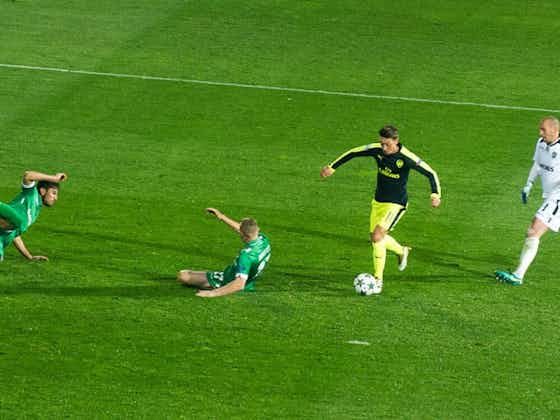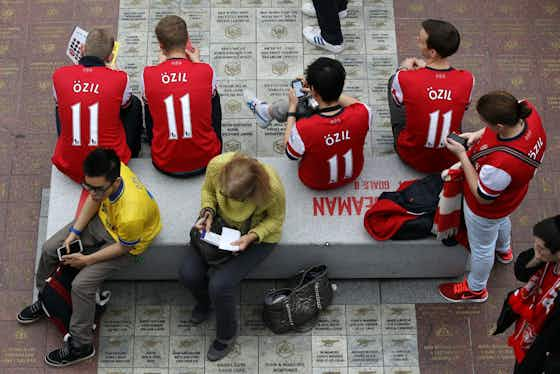OneFootball
Lewis Ambrose·18 January 2021
Joy, not decline, is what we must remember from Mesut Özil at Arsenal

In partnership with
Yahoo sportsOneFootball
Lewis Ambrose·18 January 2021

Just for once, ignore the circus.
Ignore the reports. Ignore what went wrong.
And please, once and for all, ignore those slumped shoulders.
They had no impact on his performances. In fact, they were part of the charm. The laissez-faire playmaker, the classic number 10, the man who made things happen and saw things others couldn’t.

Mesut Özil was, at least for his first five years in north London, a genius who could run or change entire matches at will. All to Arsenal’s benefit.
He arrived at the Emirates Stadium to incredible fanfare. Arsenal were back. After losing Patrick Vieira, then Ashley Cole, then Thierry Henry, then Emmanuel Adebayor, then Cesc Fàbregas and Samir Nasri and Robin van Persie, the Gunners had finally bought a readymade world class star to call their own.

But he didn’t have the force of personality, the gravity, to make things all about him. He wouldn’t beat four men and score, or find the top corner with a rocket from 30-yards, or make a last-ditch tackle to get the crowd going. But he never did those things for Germany or Real Madrid either, and he was still world class.
He was a player who simply understood football so well and had such exquisite technique that he made all of his team-mates better, every attack more dangerous.

For some reason, though, the German found himself constantly criticised for not doing those things that we all knew he did not do. And that criticism so often encapsulated one of the saddest things about the way we consume football nowadays.
All that time spent criticising what he couldn’t do could’ve been spent enjoying what he could, and did, do.
The flicked assist for Olivier Giroud against Aston Villa. Or seeing Nacho Monreal arrive from nowhere at the back post against Swansea.
Or setting up a move with a sumptuous flick on the halfway line, dummying the ball on the edge of the area, then running on to a pass and squaring it for a tap-in against Leicester.
Those deliberate and unique bounced finishes over John Ruddy, over Jonas Lössl, over Simon Mignolet, over Artur Boruc.
The 19 Premier League assists in a single season. And 146 key passes, a Premier League record for a season, in the same campaign.
THAT goal in the final minute against Ludogorets.
And when he trapped the ball so cleanly he made a raucous Anfield coo.
Eighteen goals and assists (15% of his Arsenal total) coming against so-called top six rivals, despite the constant narrative that he ‘didn’t do it’ in those matches.
There is no denying that things have not gone well for Özil at Arsenal, or Arsenal with Özil, since 2018.
Bar the odd flash of brilliance, the occasional reminder of his talent, it has not been the end to the marriage that anyone would have wanted. And it would be unfair, and plainly wrong, to pretend there were never issues.
But it would be unfairer still to him, to Arsenal, and to ourselves, to let the past couple of years cast a shadow over the five that preceded them.
Discussion of those issues, and their complications, don’t belong in this piece.
Mesut Özil made football fun and has brought joy to millions of Arsenal fans the world over. And isn’t that why we all fell in love with the game in the first place?






























































